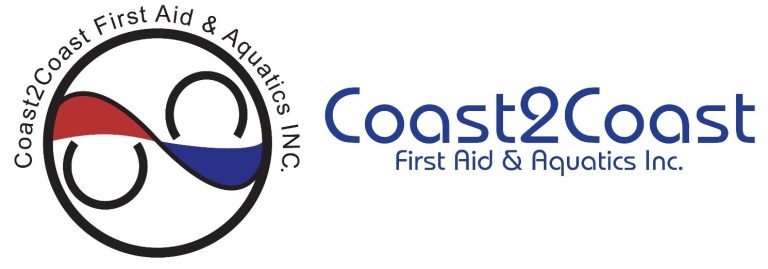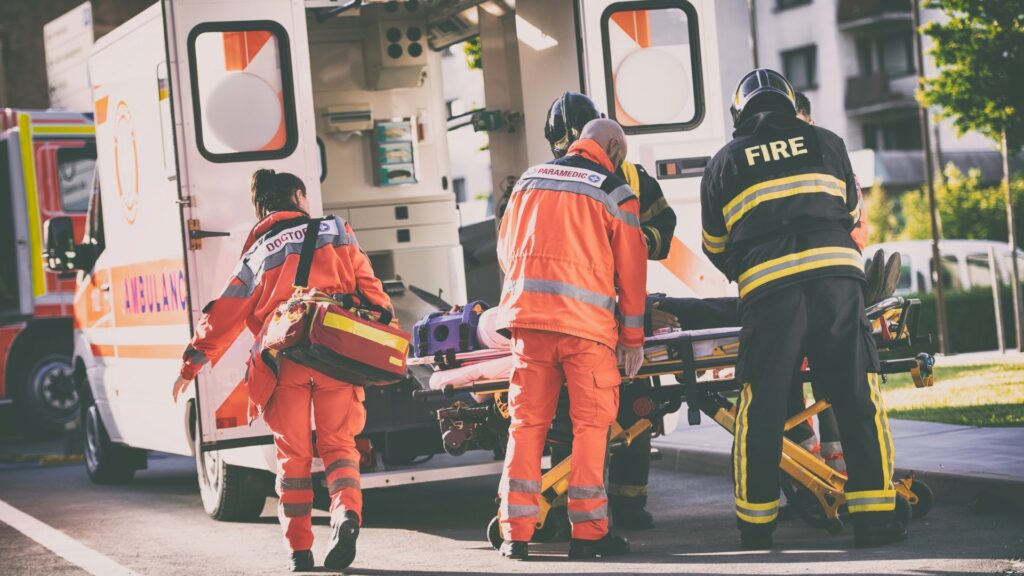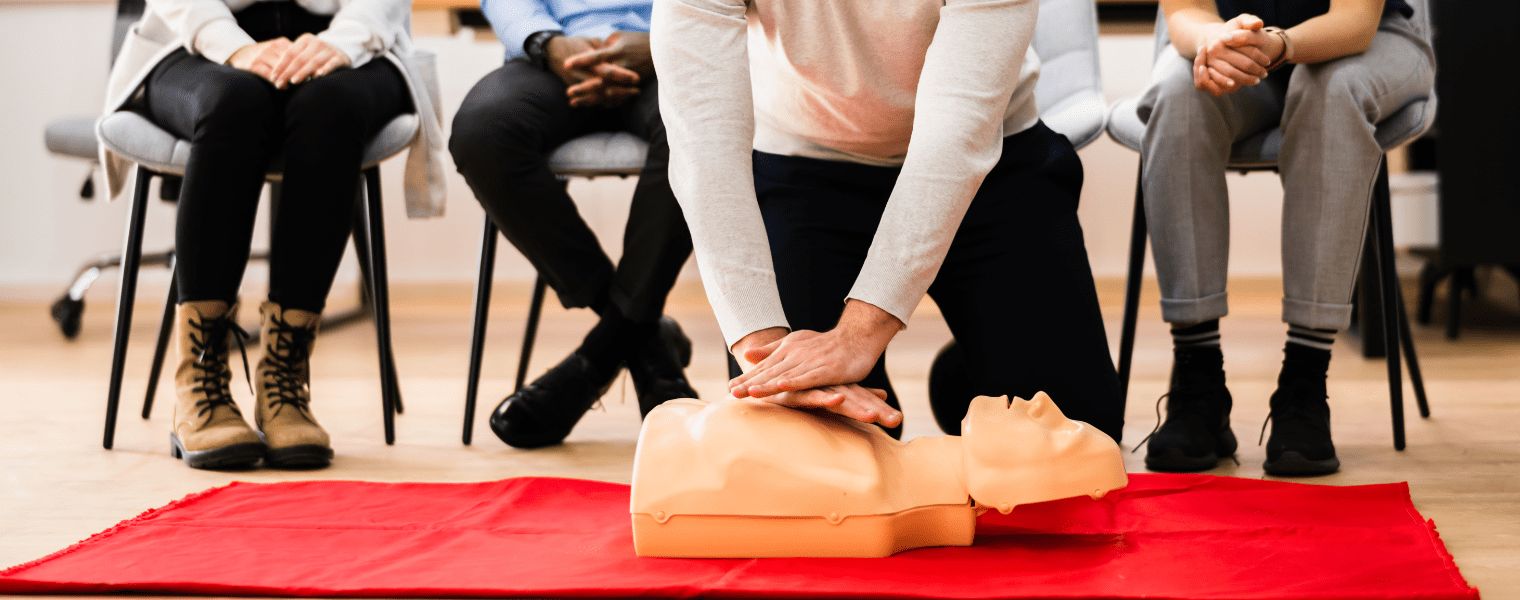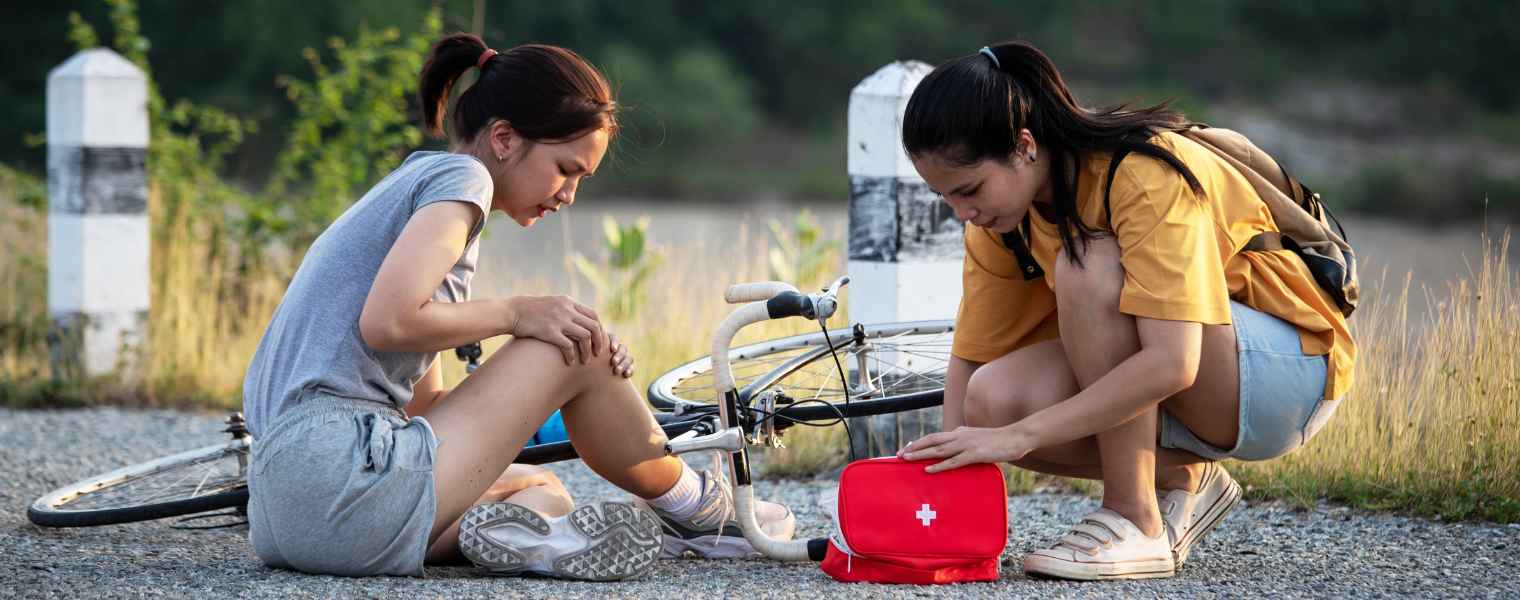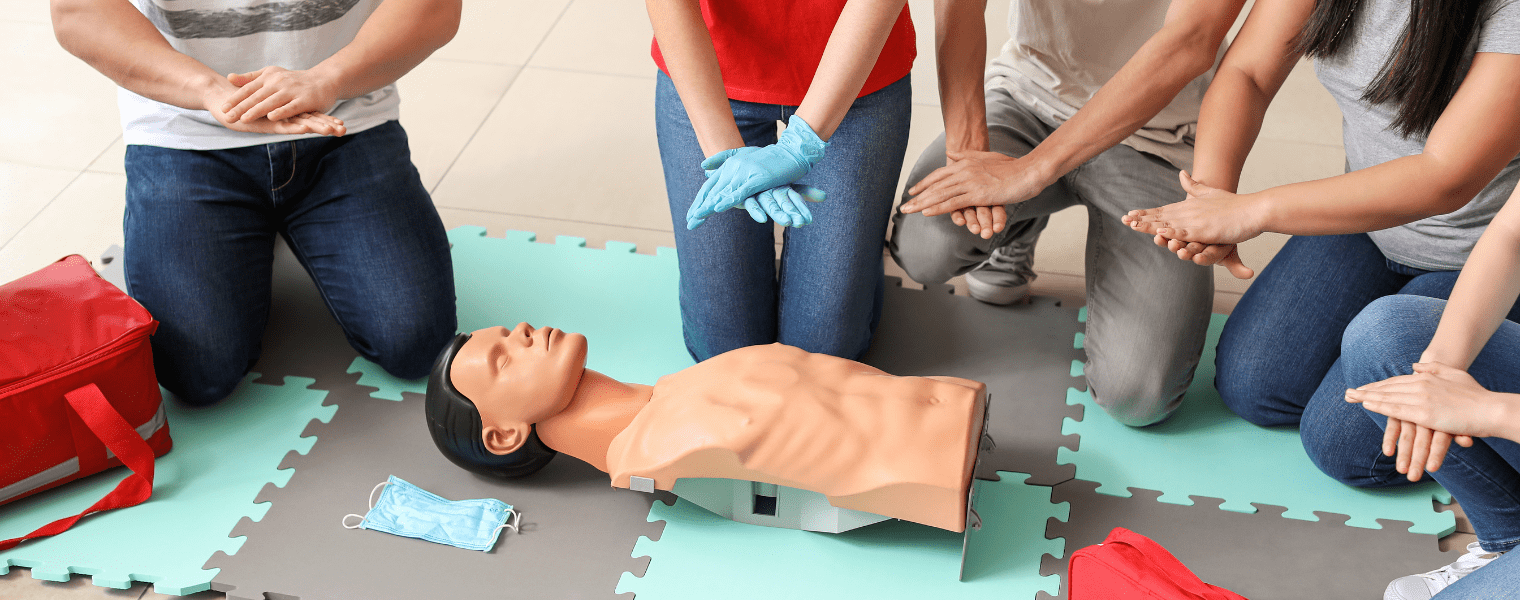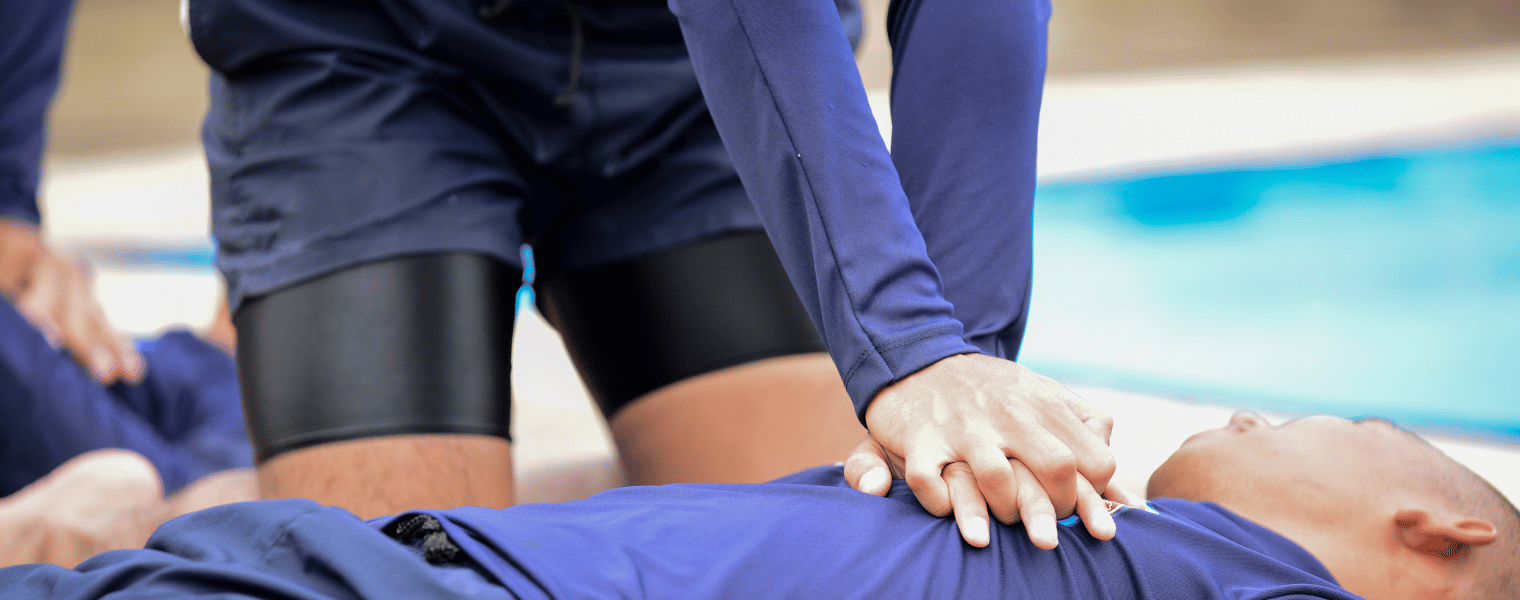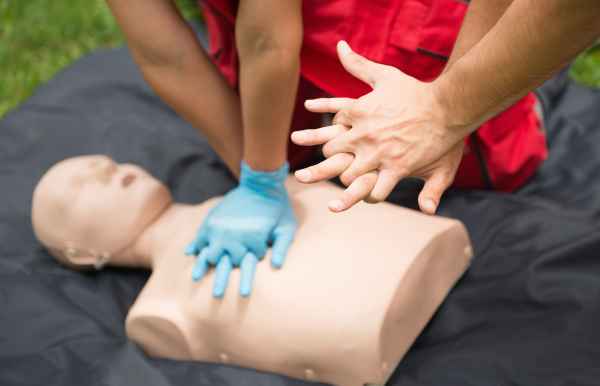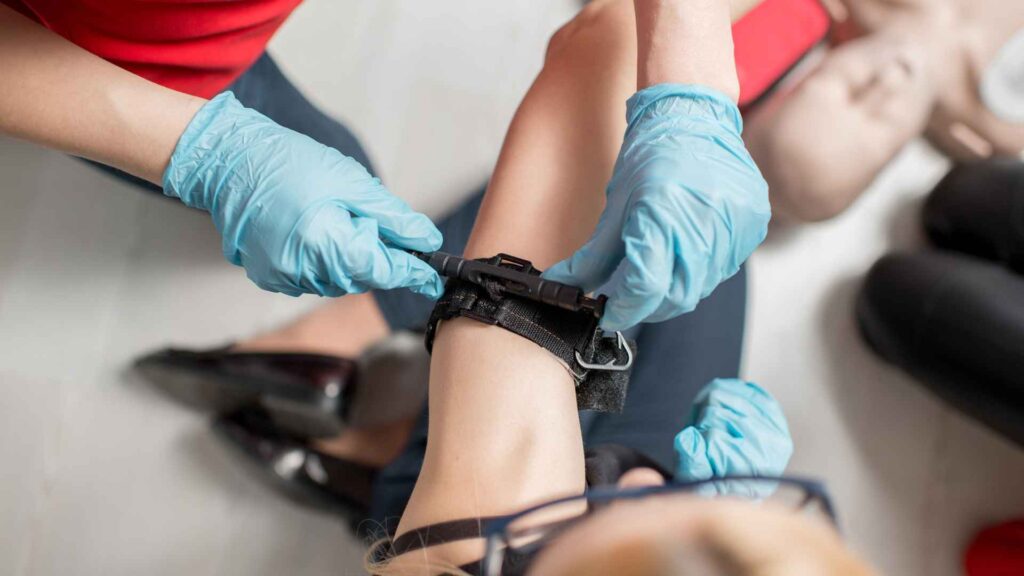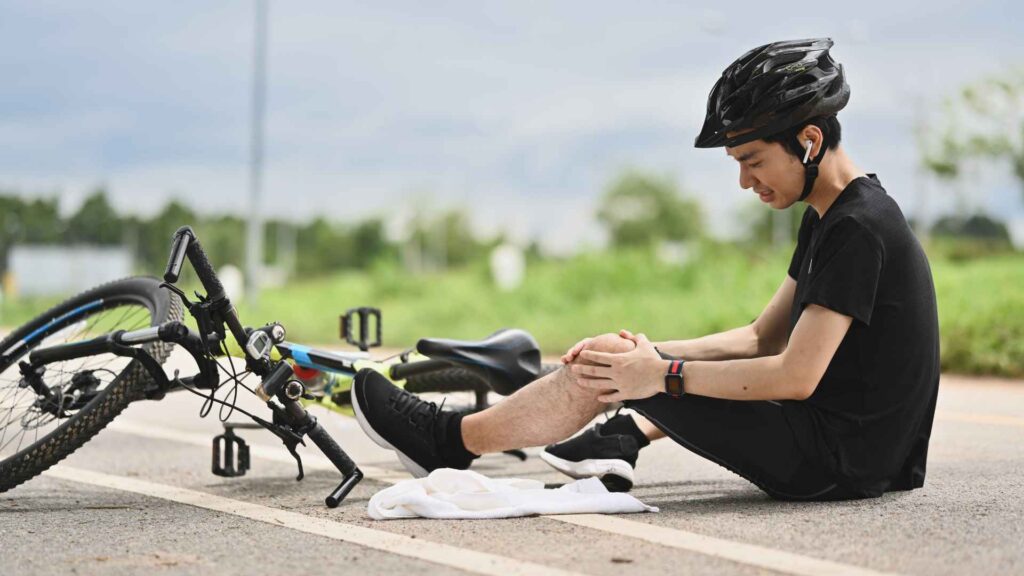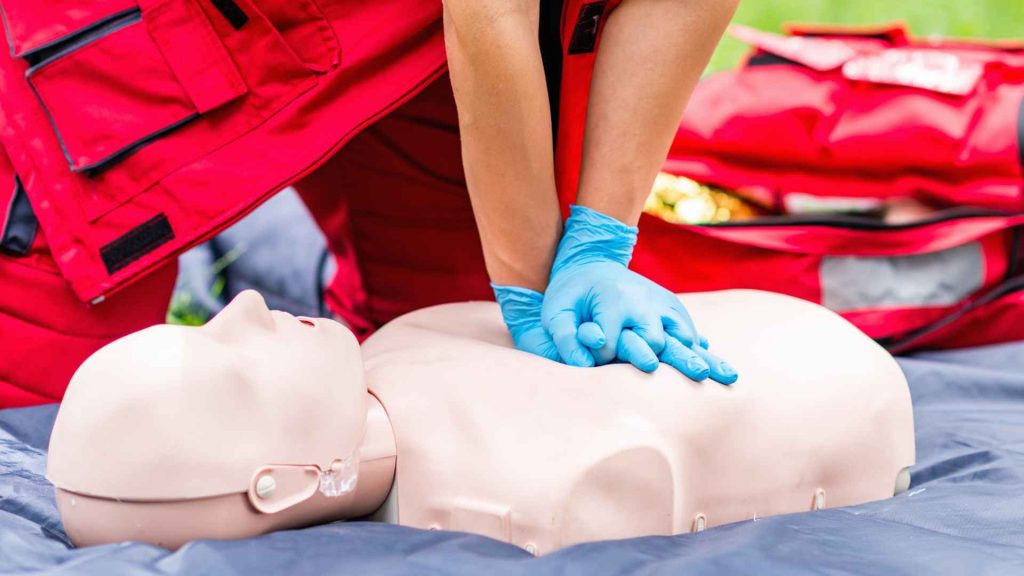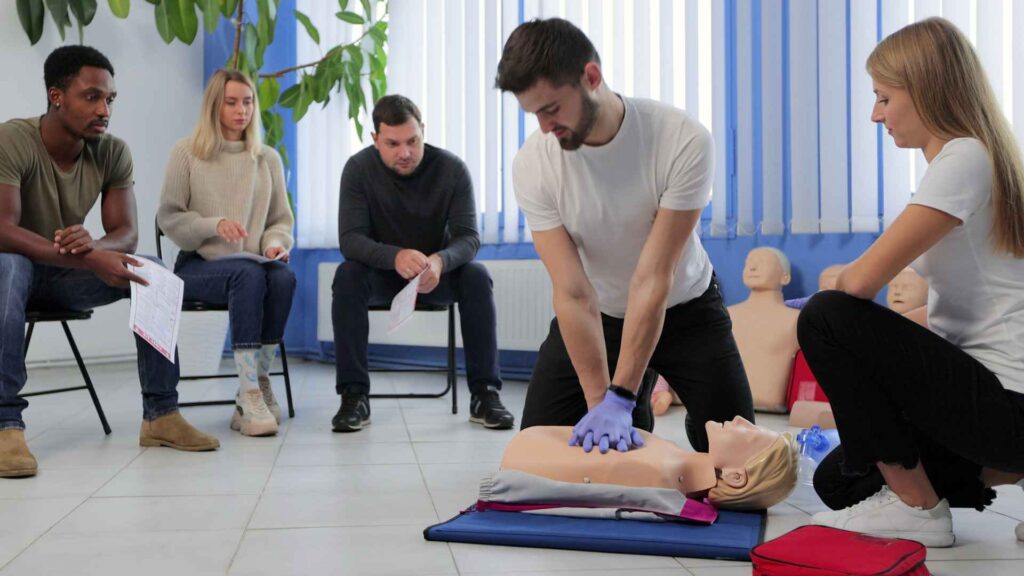IN THIS BLOG
IN THIS BLOG
- How do I become a First Responder in Canada?
- Difference between First Responders and Emergency Medical Responders
- First Responder Course
- What will I learn in First Responder Training?
- First Responder Course Duration and Certification
- Can I Recertify my First Responder Certification?
- Register for First Responder Training in Ontario
Emergencies can happen out of the blue; that’s why first responders are viewed as heroes all over the world. At Coast2Coast, we provide First Responder (FR) training for firefighters, paramedics, police officers and emergency medical technicians, who are typically the first ones to arrive at the scene of an emergency.
How do I become a First Responder in Canada?
Canada has different kinds of first responders; therefore, the requirements and qualifications to become one may vary if your future is among firefighters, police officers or paramedics. However, our team of highly experienced instructors and our top-notch first aid equipment will help you develop the life-support skills to thrive in a challenging emergency environment. The First Responders course is based on practical scenarios in a controlled environment for students to practice and develop first aid skills.
Although our FR training will give you the skills and basics to deal with emergencies, remember that additional official schooling is necessary to become a first responder. In Canada, paramedics must complete a recognized paramedic program that typically takes three years to complete at colleges. On the other hand, a high school diploma or equivalent is required to become a firefighter, and the professional training takes up to a year to complete. In contrast, a police officer takes six months to a year at police academies.

The Difference between First Responders and Emergency Medical Responders
Because both FR and EMR (Emergency Medical Responders) are trained to respond to medical emergencies and provide necessary care, there are some differences in their roles and responsibilities.
Generally, first responders are the first ones to arrive at an emergency scene; hence they are trained to provide Basic Life Support (BLS), which includes crucial knowledge of cardiopulmonary resuscitation, airway management and oxygen delivery, spinal immobilization, injuries and bleeding control. In most cases, they have the minimum equipment at their disposal, so they rely on their skill set and trauma kit to provide immediate assistance to stabilize the patient until the medical personnel arrive. Anyone with the right skills can be a first responder and save lives.
On the contrary, Emergency Medical Responders (EMRs) are healthcare professionals with the specialized training to perform crisis interventions such as administering oxygen, glucose and spinal immobilization and even treating circulatory, respiratory and pregnancy emergencies. Also, they specialized in transporting patients using stretchers, loading them into ambulances and setting up a main IV. At Coast2Coast, we provide EMR training and certification for advanced medical personnel.
Inquires about First Responders Certification
Do you have questions regarding First Responders’ training? Contact us today! Our customer service representatives are ready to assist you.
First Responder Course
Our First Responder (FR) course is an intensive training aligned with the Canadian Red Cross guidelines to give you the essential skills for current and future first responders.
Learning to deal with emergencies requires proper training and the development of teamwork, communication and practical decision-making skills. Coast2Coast has designed a 4-day intensive training that goes through the basics skills, such as how to administer CPR or how to use an AED, to the assessment of injuries, dealing with trauma and applying splints and bandages.

Moreover, the First Responder course comprises practical scenarios that will give you the confidence to demonstrate your first-aid skills in challenging situations.
What will I learn in First Responder Training?
Throughout the First Responder course, students will utilize high-quality, up-to-date training equipment alongside professional instructors to be ready to respond to emergencies in their communities. The FR program covers a variety of topics detailed as follows:
- The Professional Responder – Learn essential life-support skills like professionals
- Responding to the Call – Know how to react and what to do in emergencies
- Infection Prevention and Control
- Anatomy and Physiology
- Assessment
- Airway Management and Respiratory Emergencies
- Circulatory Emergencies
- Shock
- Hemorrhage and Soft Tissue Trauma
- Musculoskeletal Injuries
- Chest, Abdominal and Pelvic Injuries
- Head and Spinal Injuries
- Acute and Chronic Illnesses
- Poisoning
- Environmental Illnesses
- Pregnancy, Labour and Delivery
- Special Populations
- Crisis Intervention
- Reaching, Lifting and Extricating Patients
- Multiple-Casualty Incidents

First Responder Course Duration and Certification
As mentioned before, the course has a length of 4-day training with a total of 40 hours of teaching time. To get the certification, students must complete the minimum requirements based on attendance, score in the multiple choice knowledge test and completion of at least two practical scenarios (one medical and one trauma).
As part of our partnership, upon successfully completing the program, you will receive a First Responder Red Cross Certification. The certificate is valid for three years and will enable you to level up your skills for the Emergency Medical Responder (EMR) course. In addition to receiving an FR certification, students will also receive a Basic Life Support certificate valid for one year.
Can I Recertify my First Responder Certification?
After three years, your FR certification will expire; therefore, students can return to our facilities for recertification. The First Responder recertification lasts 20 hours within two days of training, where the student will have the opportunity to review and refresh life-saving practices and stay up-to-day with new methodologies.
To be eligible to attend the recertification course, make sure to bring proof of valid First Responder Canadian Red Cross certification. Upon successful completion, the student will get a new certificate valid for three more years.

Get Registered for First Responder Training in Ontario
At Coast2Coast, our team of professional instructors works closely with firefighters, paramedics and police officers to enhance their life-support skills to thrive in emergency situations. Whatever your level of training, you can contact us at Coast2Coast to help you find suitable courses and classes to help you achieve your goals. Your certification can do more than help you save lives; it can also help you advance your career.
